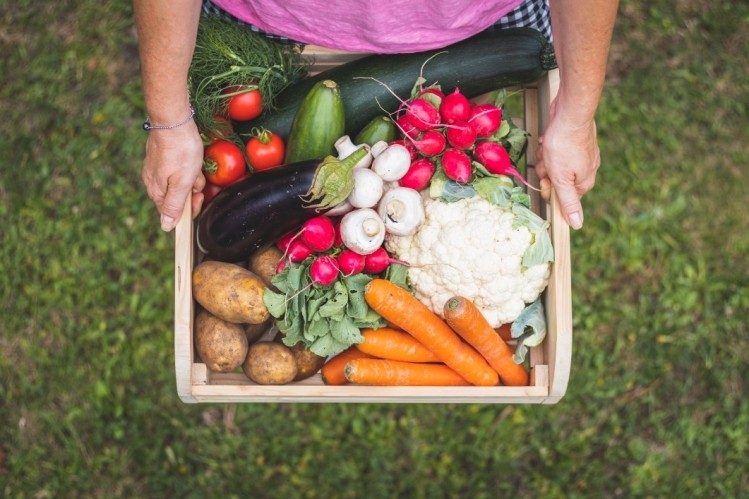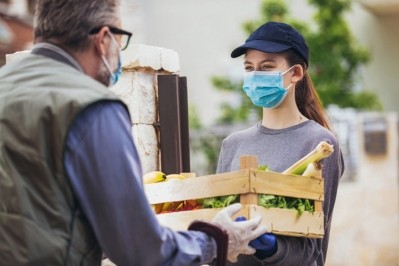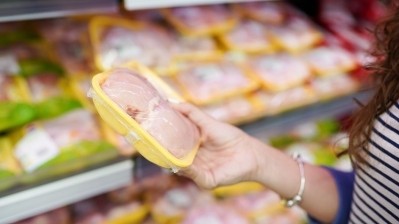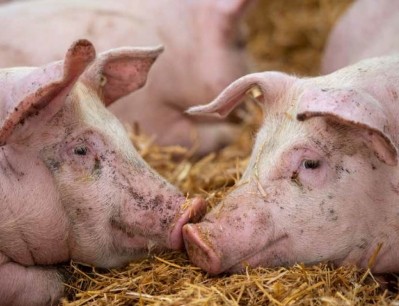‘A 21st century food and farming revolution’: Produce & Provide backs farmer-to-consumer shift

Demand for local food is rising. Research carried out by shopper insight provider IRI late last year found that seven out of ten European shoppers identifying ‘strongly’ with ethical purchasing practices and expressed a ‘clear preference’ for buying locally sourced products.
The survey, which gauged the opinion of more than 3,000 European consumers across seven countries, including the UK, Italy, France and Germany, discovered ethical considerations have become closely linked with regional production.
This trend has since accelerated. The sentiment propelling the climate protests that swept Europe are reflected in a shift towards climate-smart food. Meanwhile, the COVID-19 pandemic has placed the spotlight on food security and left consumers with a desire to support local economies.
Enter Produce & Provide.
The business is the brainchild of Neil Darwent, who is also founder and director of the Free Range Dairy Network. With over 30 years’ experience managing mixed farming businesses, Darwent currently oversees the running of a mixed beef, sheep and arable agri business in Somerset.
His experience has imparted a clear sense that the uneven power relationships in the supply chain and mass distribution models are working to the detriment of farmers, consumer health and the environment.
Darwent feels the farming community is concerned about its place in an uncertain future. The dominance of big food in the supply chain means farmers often find themselves in the role of ‘a powerless commodity producer’ while the food we eat is being ‘stripped of its provenance and taste’. Meanwhile, prolonged Brexit negotiations and the risk of foreign trade deals that undercut UK food and farming standards are adding to concerns.
“If we continue to put convenience and price first when we shop, we are destined to have access to little other than ultra-processed alternatives to real food. The food and farming industry evolved to feed and nourish people. Today it has become all about how much profit the supply chain can extract from food on its journey between the farms that produce it and our fridges,” Darwent told FoodNavigator.
The agri-entrepreneur is a realist, acknowledging that businesses need to turn a profit. But the connection between consumers, food and the system that produces it should be strengthened, he suggested. “There has to be a profit motive to drive innovation and secure supplies and profit is a key pillar of sustainability. But we need to re-evaluate what efficiency really means and remember that every time we buy food we are voting for the farming system that produced it.”
Shorten supply chains for health and sustainability
Darwent believes that a more localised supply chain and a direct relationship between farmers and consumers will enable agricultural businesses to earn more for the food they produce.
“I believe local routes to market are essential in delivering a fair reward to producers and building trust and integrity in food for consumers. A direct connection between producer and consumer offers a more informed choice and also offers [a better] taste. It’s vital we challenge the mass production and distribution model, if we are to avoid being force-fed a diet that puts profit before all else.”
This, he suggested, isn’t just good news for farmers – it would also be positive for the health of people and the planet. “There are clear and simple benefits to local food consumption and production, like reduced food miles.”
Importantly, he continued, shoppers should understand that they are voting for the type of farming system we reply on with their wallets.
“For too long farming has been almost entirely output driven, with a focus on producing as many tonnes of food as possible at the lowest possible financial cost. Farmers have been told they need to get bigger or get out and this has resulted in our food being produced on fewer, bigger farms, using increasingly industrialised methods. People buying food locally will shift that focus from output to value and market demands.”
People who are able to buy direct from farms are more likely to ask questions about how the food has been produced, he elaborated. “Farmers will become much more customer focused and more responsive to demands for greater assurance about environmental safeguards and animal welfare. So, consumers wanting greater sustainability will directly reward local farmers who deliver it, in the knowledge they are being heard, instead of being fobbed off by Union Jack stickers and fake farm names in supermarkets,” Darwent predicted.
Support for local food ecosystems
Current distribution models are largely geared to selling at scale. But Darwent sees local producers finding new success through innovative approaches.
“I am witnessing this first-hand with dairy farmers who have milk vending machines on farm, for example. Here people willingly pay £1 a litre or more for milk, whereas before they were buying two litres for £1 in the supermarket.”
Again, Darwent believes it comes back to the connection these local businesses can offer. “A connection with the farms and farmers who produce our food seems to give people a fulfilling sense of who they are, what they stand for and where they come from.
“Sometimes the initial experience is quite unexpected and accidental. For instance, when supermarkets ran short of food, people turned to local farmers for supplies and found that not only was milk and meat available, but it tasted better too. Others are becoming increasingly aware of how the food they eat impacts on things like animal welfare and climate change and are prepared to spend more time shopping where they can make more informed or responsible food choices in line with this.”
Finding a channel is the ‘biggest challenge’
The journey for a business focused on production and output to marketing and selling is a challenging one that requires new skills and more work. Produce & Provide hopes to fill this gap by offering farmers the support they need to ensure expectations are met and a new venture doesn’t ‘end being an expensive hobby’.
“It is amazing to see how local ventures starting at the very smallest scale, in kitchens and farmyards, can learn and grow and their nimbleness and ‘can do’ attitude often offers service that cumbersome giants cannot. Produce & Provide is not here to directly challenge the established supply chain: I want to make sure that food production is driven by those who really matter but have the least say in what we eat – farmers and consumers.”
Darwent brings his own experience of marketing and promoting milk and dairy products, to help set out a clear plan for producers who want to establish a direct selling venture.
While Darwent acknowledges ‘price will always be a factor’ he insists that farmers should not engage in a race to the bottom. Instead, these businesses should concentrate on developing a ‘clear plan’ and an ‘engaging story’.
“People are becoming more aware of the true costs of cheap food – animal suffering, environmental damage, farmers packing up. I have no wish to encourage farmers to produce at price parity with supermarkets, and farmers are tired of being trapped in a race to the bottom.
“For me, Produce & Provide is all about adding tangible value. If people visit a farm and shake the hand of the producer when they buy food, they will begin to talk about value rather than price. So even those on lower incomes will begin to learn that it’s not the litres, kilos, or calories we consume that are important – it’s the quality and value that matters. I believe people will adjust their lifestyles and choices as they become more aware of how the food they buy impacts farmers and the world around them.”

























